Today I interrupt the posts about cupcakes and cookies to share a very important post that is very personal and close to my heart. Today is the first National Apraxia Awareness Day. What’s apraxia? Yeah, about a year ago, I had no idea either. Fast forward to today, and I am extremely aware of what apraxia is. Why? Because apraxia of speech is a neurological disorder that our beautiful three year old daughter Grace lives with each and every day.
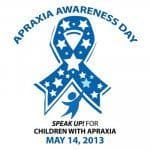
 Some statistics show that it takes some children with apraxia as many as 3,000 repetitions to master a single sound. It is a huge mountain to climb, and some days it feels like an impossible journey. So few people, even professionals, understand apraxia, which is why it is so important to raise awareness.
Some statistics show that it takes some children with apraxia as many as 3,000 repetitions to master a single sound. It is a huge mountain to climb, and some days it feels like an impossible journey. So few people, even professionals, understand apraxia, which is why it is so important to raise awareness.
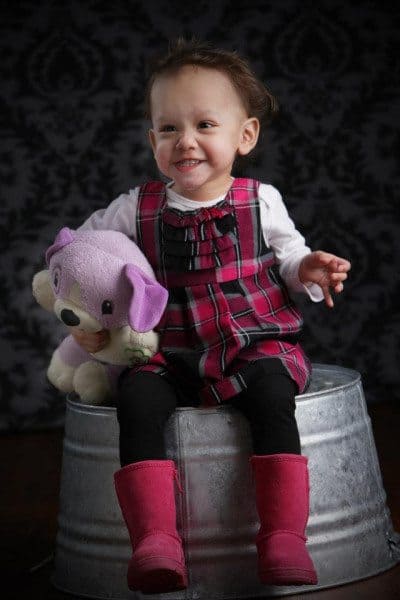
Some children with apraxia are able to use sign language to communicate, while others like our daughter, struggle just as much with sign language as they do speech. The brain formulates the thought and motor planning helps carry it out, either through speech or sign, and for Grace, sign language is every bit as hard, if not harder than speech is. At age three, she speaks fewer than ten words, but she tries all day, every day, to communicate with us. Her motivation (and stubbornness!) is huge, and hopefully will serve her well on this journey.
But Grace is so much more than apraxia…
A few photos from the recent Arizona Apraxia Walk, where we raised money for and awareness of Apraxia. I was blown away by the generosity of not only my friends and family, but also by my readers! More than a few tears have been shed over people who have never met us, opening up their wallets and donating money in Grace’s honor. Wow. Team Grace ended up being the top fundraiser for the Arizona walk. I do not even have words to express my gratitude and appreciation.
I thank you, from the bottom of my heart, for taking the time to read this post and learn about apraxia. Now you might better understand why one child may not say hello at the park, why another may not say thank you when handed Halloween candy, why one “talks funny” or why another carries an electronic “talker” that they use for speech. I truly believe that awareness helps breed acceptance. Tomorrow my older daughter will be telling her 3rd and 4th grade classmates about apraxia, and raising awareness at her school. She knows her little sister has a long road ahead, she worries about her being an easy target for bullying, and is doing what she can to educate others in hopes of creating a more accepting environment for her one day. That is one of the silver linings of this journey, the understanding, empathy and desire to help others that living such a life brings into your home.
I leave you with a video that does an incredible job of sharing the feelings that we have as parents when it comes to apraxia, and why it matters so much for us to do what we can to help.
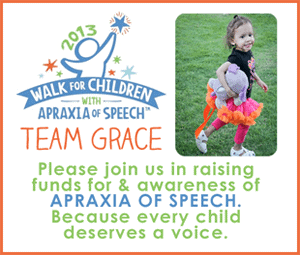
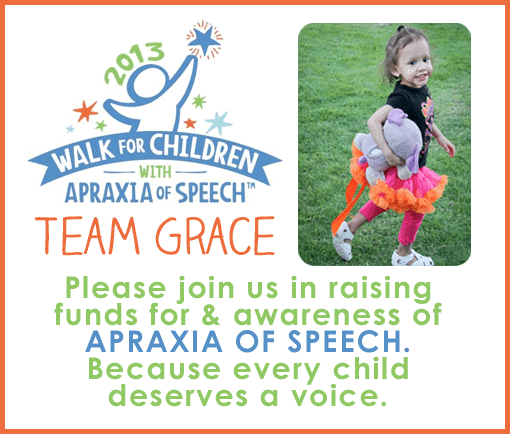
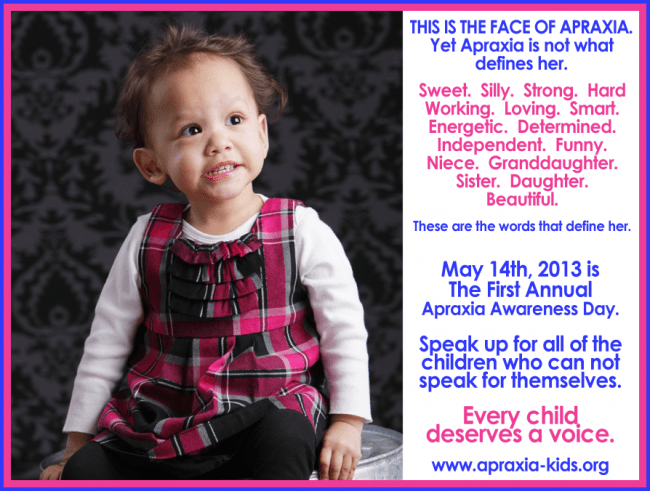
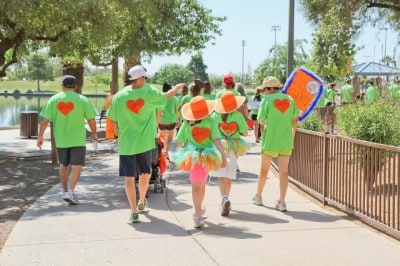
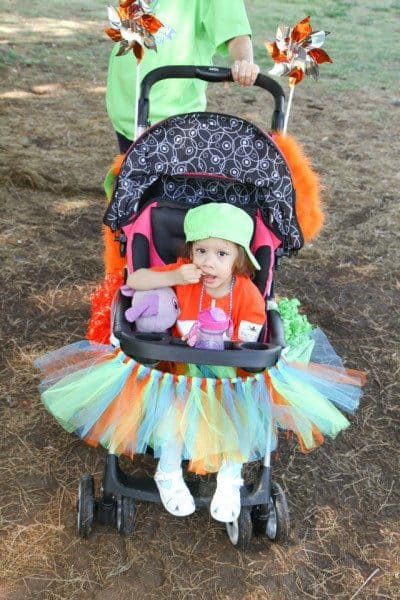
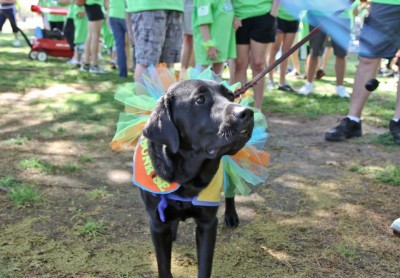
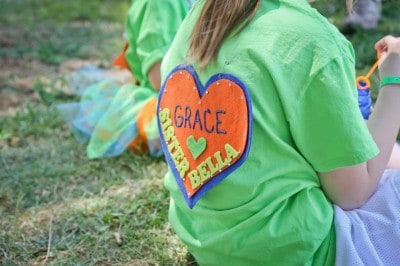
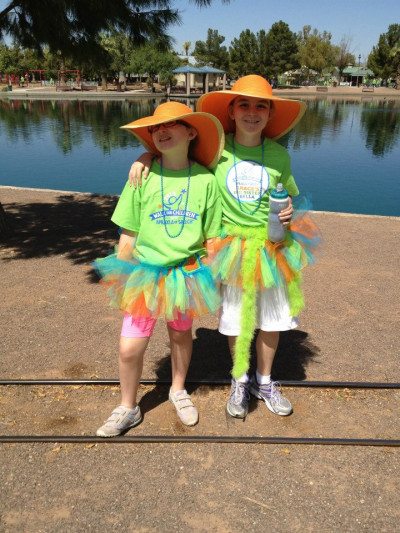
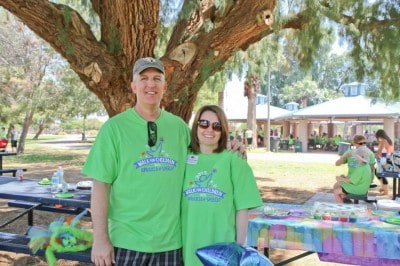
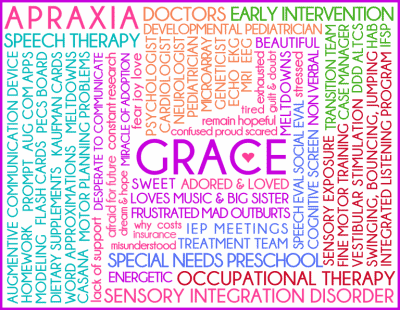


Mary @ Redo 101 says
Well I just wish I was there to tell her how beautiful she is, to smile into her eyes, maybe even gain the privilege of a hug. I think every child should be greeted this way, and I even stop people in the grocery store so I can tell their children how beautiful they are. Our children are adopted from Romania, and our 17-y-o daughter (adopted at 15 mos) has serious emotional/mental issues. So I ” get it.” Cyber {{{hug}}} to your sweet daughter. Mary
Christi says
Mary, what a sweet comment, thank you so much for sharing. It’s always nice when we can connect with others who get it and travel a similar path. Hugs.
Alison says
Thank you for writing this. My 5 year old son has apraxia and it is still such a struggle. He had no words at all until after he was 3. He’s come a long way, but unless you know him, you have no idea what he is trying to say. It breaks my heart when kids won’t play with him because they think he’s weird and he talks funny. I’ve also come across some very judgmental adults who could really use some education and compassion. It kills me to see the tantrums he throws out of frustration from not being understood. Thankfully, he’s in a special program now where he gets the speech and behavioral therapy he needs, but I am dreading the fall when he starts kindergarten in a regular class because I can’t see it going well. He will still get speech, but no other services because of budget cuts, which is awful.